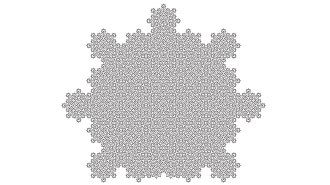It’s getting close to the end of the regular baseball season. Fanatic fans track not only which team is in first place or in position for a wild-card berth in the playoffs but also the number of games a team must win to avoid elimination.

The elimination, or “magic,” number is usually defined to be the smallest number such that any combination of wins by the first-place team and losses by the second-place team guarantees that the first-place team will win the division.
Computer scientists have suggested that the usual calculation of the magic number is too simple. For example, it doesn’t take into account the fact that, if the other team loses a game to a third team, the third team gains points. Whether a team is eliminated actually depends, in part, on the schedule of remaining games.
Dorit S. Hochbaum of the University of California, Berkeley, and colleagues Ilan Adler, Alan L. Erera, and Eli V. Olinick have developed new measures of elimination that they claim are more informative than traditional magic numbers. Their Web site at http://riot.ieor.berkeley.edu/~baseball/ now provides regularly updated tallies for pennant races in major-league baseball.
“By using optimization techniques, one can model schedule effects explicitly and determine when a team has locked up a playoff spot or is truly ‘mathematically eliminated’ from contention,” the researchers write in a paper describing their scheme.
The magic number is traditionally computed using three values:
- w1, the number of games the team currently in first place has won so far.
- w2, the number of games the team currently in second place has won so far.
- g2, the number of games the team currently in second place has left to play.
Given these values, the magic number is w2 + g2 – w1 + 1.
However, there are situations in which teams can be eliminated from contention sooner than indicated by the magic number. The number also really applies only to pairs of teams.
In its place, the Berkeley Remote Interactive Optimization Testbed (RIOT) for baseball provides two new measures–the clinch number and the elimination number–which take into account the full schedule of remaining games.
The first-place clinch number is the number of additional games a team must win to finish in at least a tie for first place in its division. The first-place elimination number is the minimum number of games a team must win in order to remain in contention for first place in its division. Analogous numbers can be calculated for playoff spots.
So, by checking the RIOT Web site, fans can track the progress of their favorite teams into or out of the playoffs, as the numbers change day by day during the season. And they’ll probably find out a team’s ultimate fate sooner than if they relied on the magic numbers bandied about on sports pages of newspapers.






